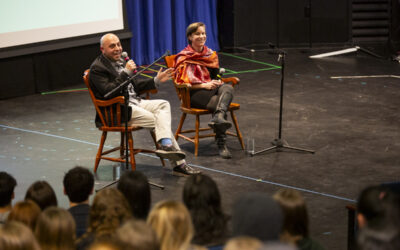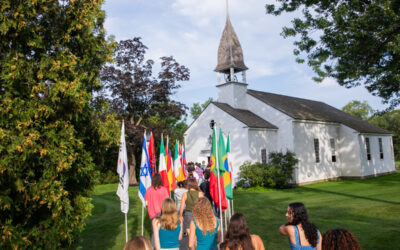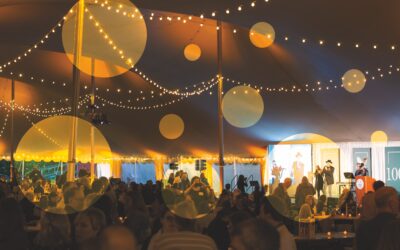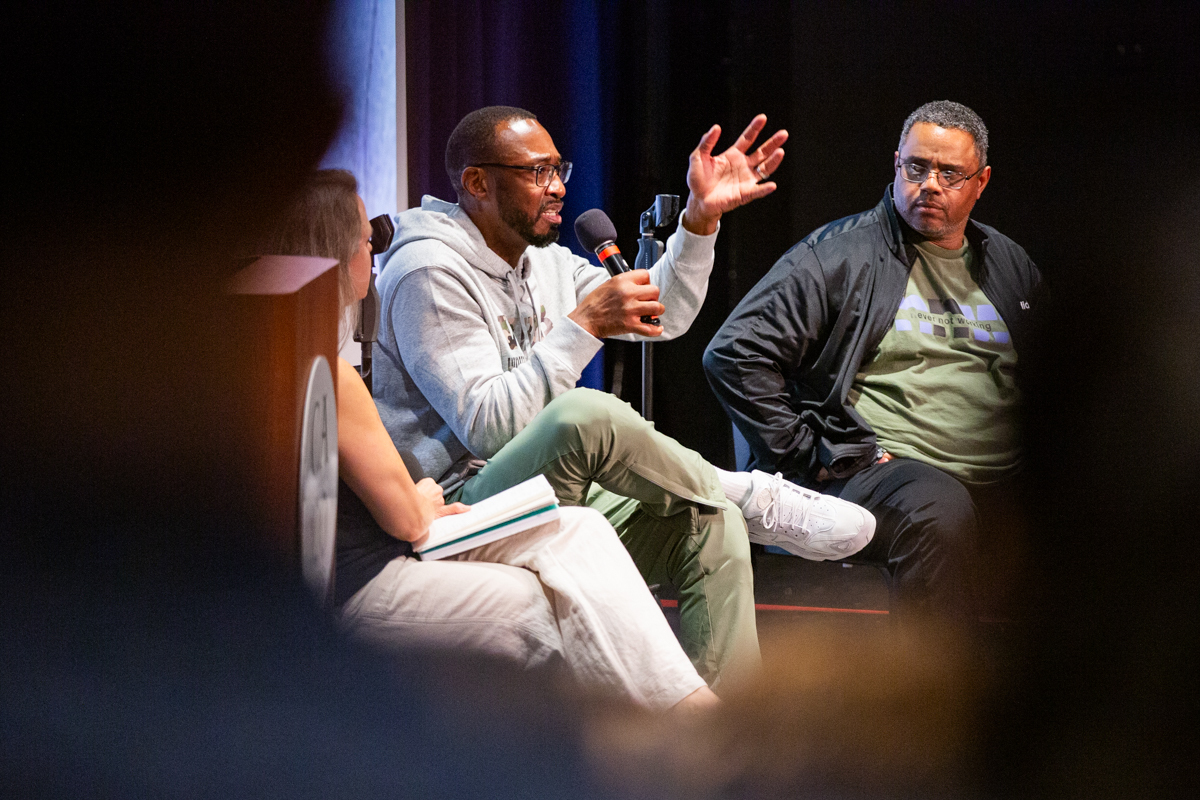
Consider the harm done to innocent individuals, their families, and their communities when the criminal legal system meant to serve and protect them instead falsely imprisons them. Consider also the historical and social factors that contribute to such miscarriages of justice. Learn more, and take action. This is what a Wrongful Conviction Day assembly hosted by CA’s Prison Justice Project on October 4, 2023, asked the Concord Academy campus community to do.
Over the past few years, Prison Justice Project has engaged with the New England Innocence Project and its Exoneree Network. The student-run club organized this opportunity for the CA campus community to hear from attorney Lisa Kavanaugh P’22 ’25, director of the Committee for Public Counsel Services (CPCS) Innocence Program, and two men who had been wrongfully convicted, given life sentences, and been recently released after decades behind bars.
Sean Ellis previously spoke at CA in 2022, and his experience has been chronicled in the 2020 serialized Netflix documentary Trial 4. After his release, he co-founded the Exoneree Network to offer others who had been wrongfully convicted practical, emotional, and spiritual support for reentry into society. Stephen Pina was released in 2022 but is still waiting to be granted a new trial. In his words, he was “freed but fighting.” The two men, both of whom had been helped by Kavanaugh’s team at the Innocence Project, told a remarkable tale of friendship, self-advocacy, leadership, and the resources needed to tirelessly pursue justice.
Their paths first crossed nearly exactly 30 years ago, on October 6, 1993, at the West Roxbury District Courthouse in Boston. For Ellis, it was the day after two of his cousins, who had been murdered, were buried—he had been arrested leaving the funeral and brought to a frigid holding cell, where he shivered through the night while an officer “played the taps,” knocking menacingly on the bars. Just 19 years old, Ellis struggled to understand how he possibly could have been arrested for killing a Boston police officer. He was scared, and he was freezing. He tucked his arms inside his T-shirt and curled into a tight ball.
Pina, then 21, was in the same cell that day. He had driven from Atlanta, where he was living, back to Boston to turn himself in after he’d been notified he was wanted for a murder in West Roxbury. Being innocent, he simply wanted the matter cleared up. That day, seeing Ellis huddled on the ground, out of instinct, he took off his sweater and offered it. It was a passing kindness, something he quickly forgot about. But Ellis remembered him.
Both men were mistakenly identified by eyewitnesses. Their cases each resulted in mistrials—for Ellis, two instances of juries not finding enough evidence to convict—before they were wrongfully convicted and sentenced to life in prison without the possibility of parole. Though they were in different units, their paths crossed in the prison law library, where over the years Ellis, who started training himself in case law after his conviction, began to tutor Pina, to help him become a stronger advocate for his own case. It took years of appeals and denials, of outreach to attorneys and innocence organizations, before each could secure the legal representation that would ultimately free them.
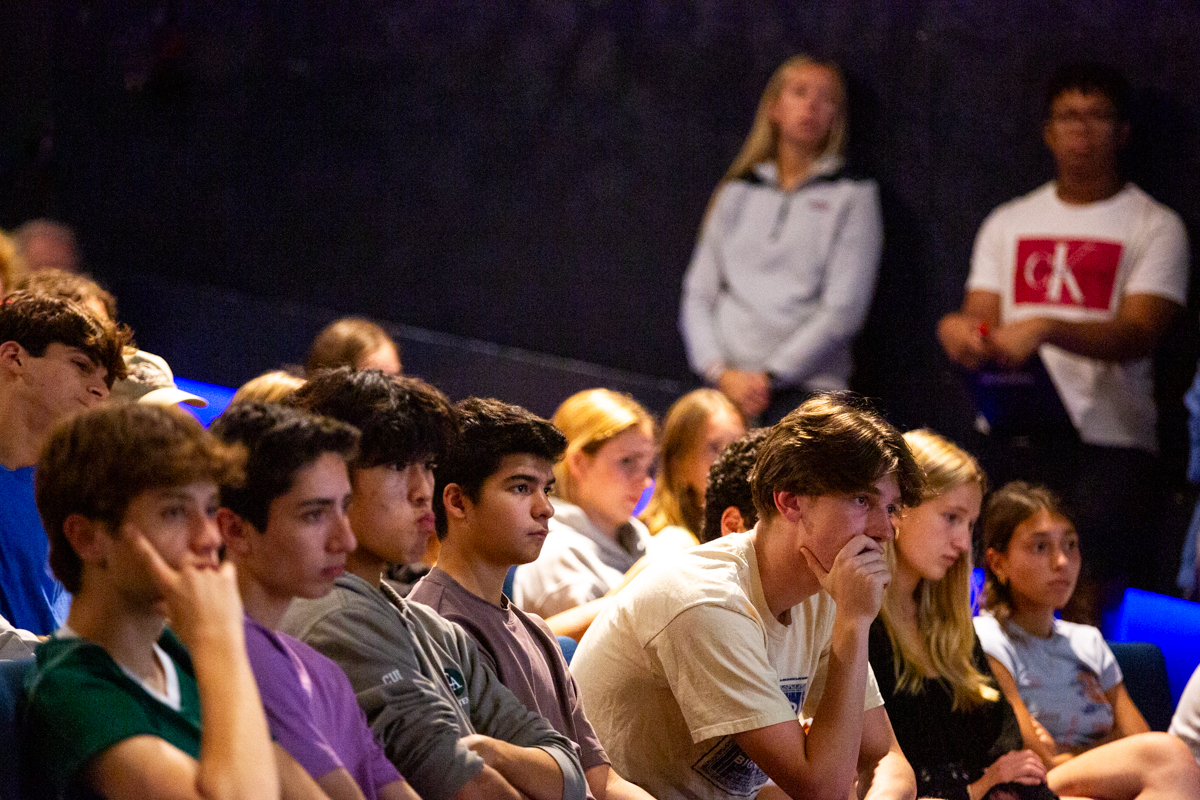
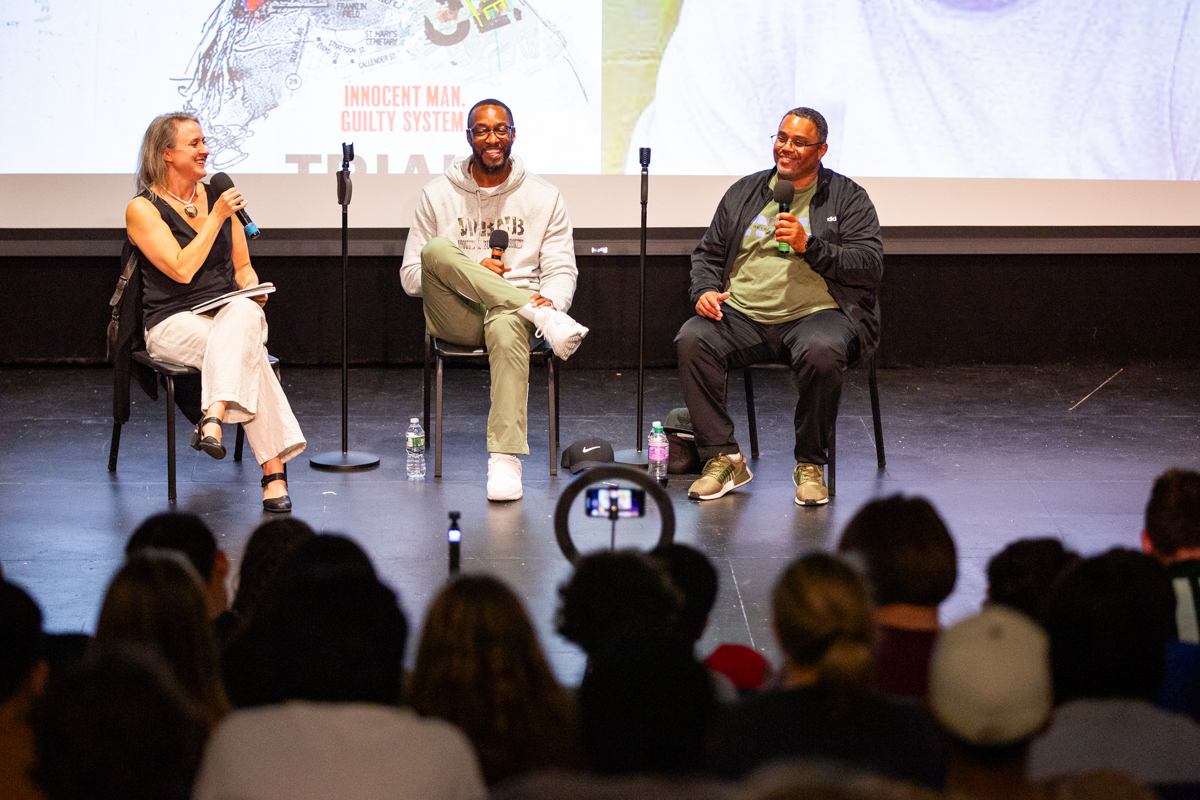
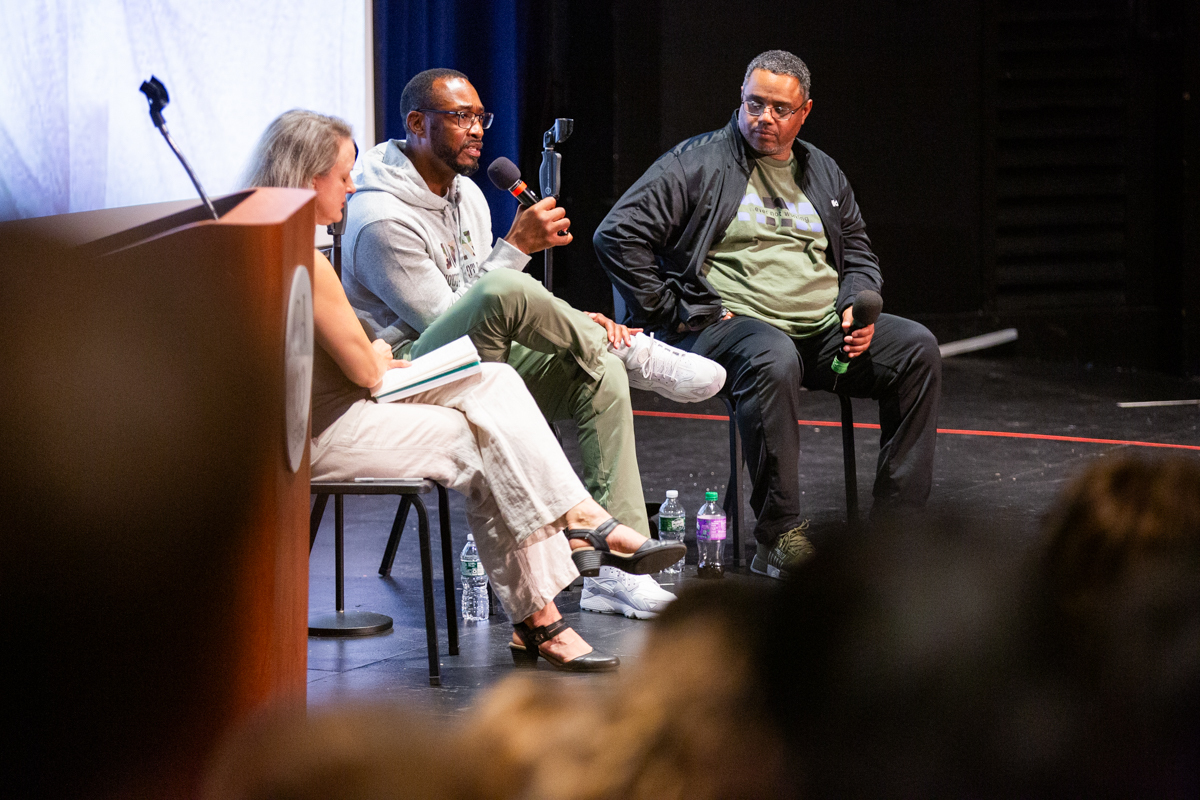
Even then, the process was torturously slow. For Pina, it took another 10 years of working with his attorney to secure his release. In Ellis’ case, freedom came only after his legal team acquired evidence that had been withheld for 21 of the 22 years he spent in prison.
“A lot of times, lawyers lose sight of how to be good storytellers and explain why new things matter,” Kavanaugh said, “and I think it’s kind of remarkable that both of you found a way to talk to each other and also talk to your lawyers.”
Pina thanked his friend for his persistence in aiding him throughout his long battle. He shared what a struggle it was for him to learn legal language. “Explain it to me like I’m a 4-year-old,” he said he would often tell Ellis.
“Steve’s simple act of kindness the first day that I met him, taking the sweater off his back when I was cold, put something in my heart for him,” Ellis said. “Years later, when we were both wrongfully convicted, … I always said to myself I would never let anything happen to him. Because he’s a good person, and when you’re in a bad environment—I remember feeling that in my heart.” Teaching Pina the law was likewise natural: “I felt the same way about him as I felt about myself.”
A student asked if Ellis and Pina had children, and if so, what they tell them about the criminal legal system. Both are fathers. Pina shared the poignant fact that his 29-year-old son had been born a month after he entered police custody—he had only known him in the prison visiting room, and he was the first person Pina wanted to hug after his release.
“This is my life’s work—talking about it,” Pina said. “Because what people don’t understand is, wrongful conviction is real. … If whites were wrongfully convicted at the rate of African American and Black and Brown men in this country, it would be an epidemic.”
Ellis added, “The 13th Amendment says that slavery is abolished except if one is convicted of a crime. It doesn’t say if you’re innocent in prison that it’s wrong.” He pointed to the importance of Wrongful Conviction Day in bringing this issue to light and the opportunity to acknowledge our collective history and change the future. Ellis appealed to students to consider how, knowing this, they might show up one day as members of a jury, or even as defense attorneys or prosecutors.
Wrongful Conviction Day is an annual event, now in its 10th year, that raises awareness of the causes of wrongful conviction, recognizing the tremendous costs both to innocent individuals wrongly imprisoned and to our society. In addition to litigating cases, Kavanaugh, who directs the CPCS public defender agency in Massachusetts that identifies and supports innocence cases, also develops statewide training programs on flawed forensic evidence and other leading causes of wrongful conviction. She shared two upcoming opportunities for students to get involved: a “Jammin’ for Justice” benefit concert on October 19 and Running for Innocence—Prison Justice Project will send a group to participate in the November 6 fundraising run. Club members also announced that they would host discussions throughout the week for the CA community to further engage.
